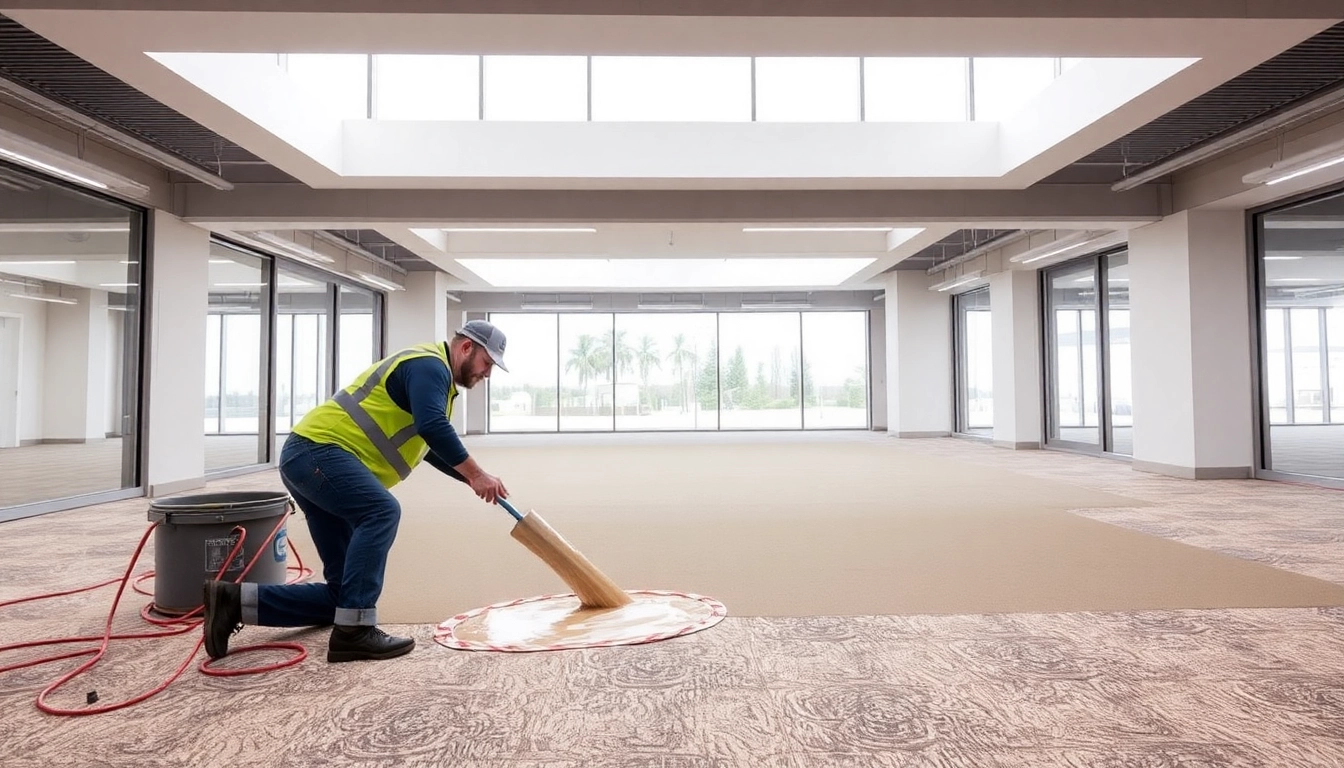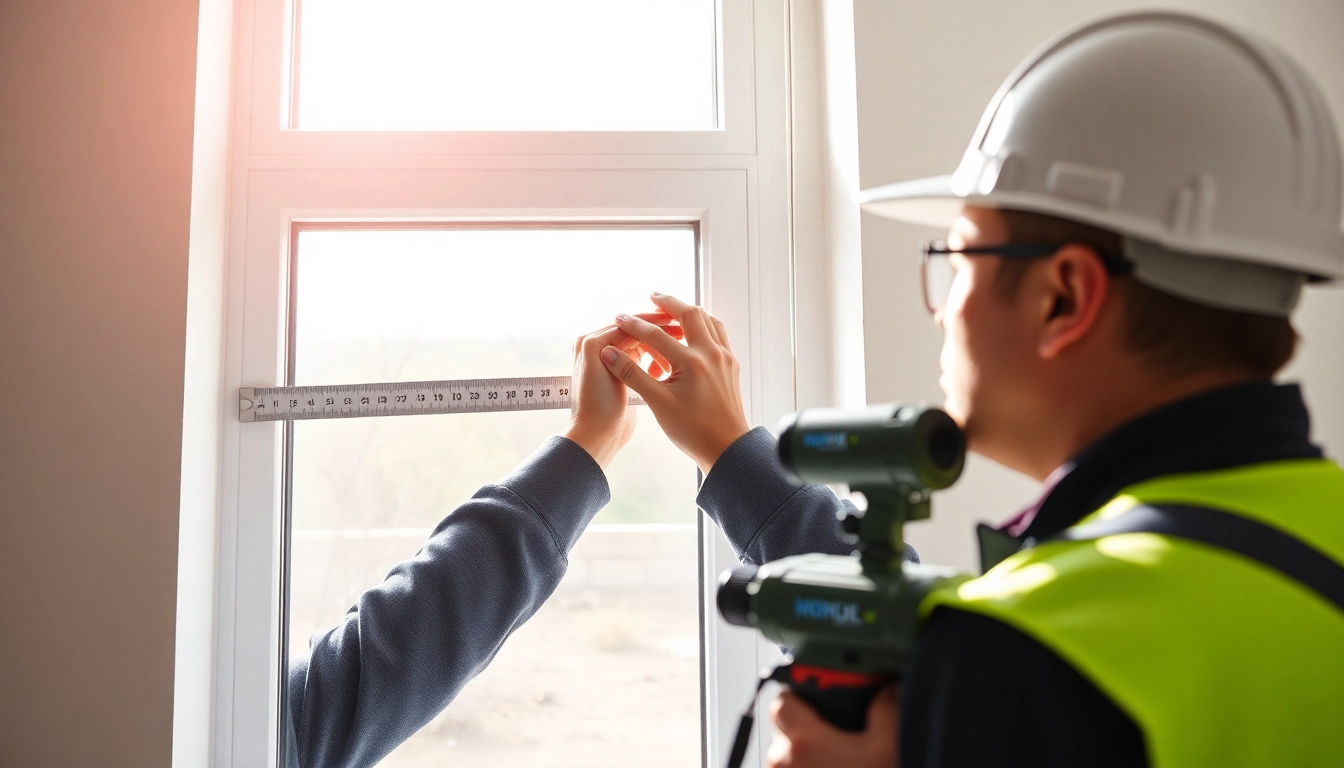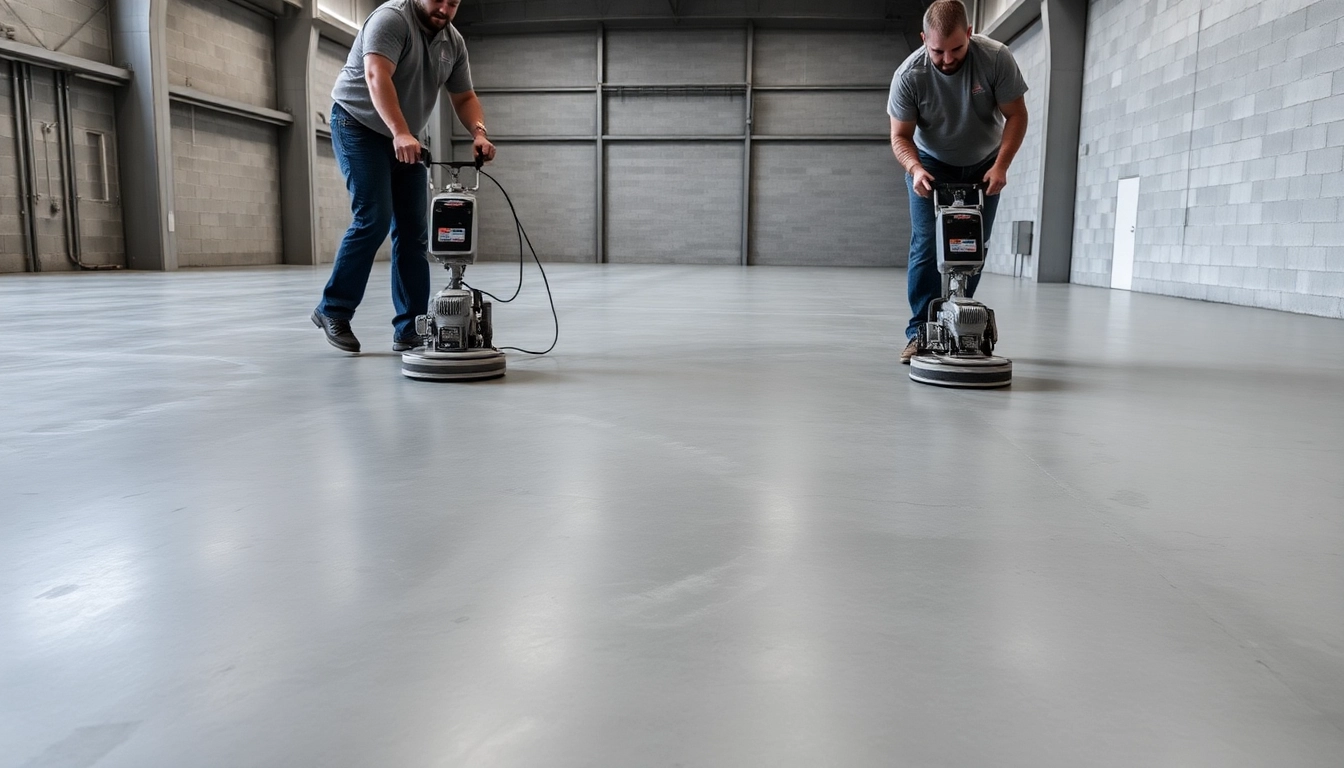Understanding Liquid Screeding and Its Benefits in Birmingham
In the ever-evolving construction and renovation industry, the choice of flooring solutions plays a critical role in ensuring durability, efficiency, and comfort. Among the modern techniques gaining popularity in Birmingham is Liquid screeding Birmingham. This innovative flooring method offers numerous advantages over traditional screed applications, especially suited to the region’s unique climate and construction demands. Whether you are planning a new build, an extension, or a retrofit, understanding the fundamentals of liquid screeding is essential to making informed decisions that enhance your project’s quality and longevity.
What Is Liquid Screeding and How Does It Work?
Liquid screed is a highly flowable, self-leveling floor screed composed primarily of cement, fine aggregates, water, and sometimes supplementary additives. Its unique, pumpable consistency allows it to be poured easily over large areas, creating a flat, smooth surface in a fraction of the time required for traditional screeding methods. The process involves mixing the liquid screed to precise ratios, then pumping it onto the prepared substrate, where it spreads out evenly under gravity and leveling tools. Once applied, it begins curing, forming a solid base suitable for finishing layers such as tiles, carpets, or polished concrete.
In Birmingham, where construction projects often involve complex underfloor heating systems, liquid screeding’s ability to coat pipes and maximize heat transfer has made it indispensable. Its rapid curing times and high flowability make it ideal for projects requiring swift completion without compromising quality.
Advantages of Liquid Screeding Over Traditional Methods
Compared to conventional sand-and-cement screeds, liquid screed offers several compelling benefits:
- Speed of Application: Liquid screed can be poured and leveled quickly, significantly reducing project timelines—crucial in Birmingham’s busy construction market.
- Enhanced Levelness and Smoothness: The self-leveling properties ensure an even surface, minimized surface imperfections, and better finish quality.
- Improved Heat Conductivity: When used with underfloor heating, liquid screed’s close contact with heating elements ensures rapid and efficient heat distribution, lowering energy costs.
- Reduced Shrinkage and Cracking: Its refined composition minimizes the risk of cracks, providing greater structural integrity over time.
- Versatility: Suitable for various substrates and adaptable for both residential and commercial properties, including complex layouts and multiple room sizes.
The combination of these advantages makes liquid screeding a preferred choice for many developers and homeowners in Birmingham seeking durable, efficient flooring solutions.
Why Choose Liquid Screeding in Birmingham’s Climate and Construction
Birmingham’s varied climate, with its damp winters and moderate summers, demands flooring solutions that can withstand moisture, temperature fluctuations, and heavy use. Liquid screeding’s inherent properties address these concerns effectively:
- Moisture Resistance: Properly installed liquid screed acts as a moisture barrier, reducing the risk of damp-related issues and mold growth.
- Fast Installation to Minimize Disruption: The quick curing times reduce construction durations, essential in a city with high demand for new housing and commercial spaces.
- Compatibility with Underfloor Heating: Birmingham’s colder months benefit from efficient heat distribution, which liquid screed facilitates, leading to warmer indoor environments with lower energy bills.
Furthermore, the increasing trend towards sustainable, energy-efficient buildings aligns with liquid screeding’s advantages—improving not just indoor comfort but also contributing to lower carbon footprints.
Step-by-Step Guide to Installing Liquid Screeding in Birmingham
Preparing the Site for Liquid Floor Screed
Proper preparation is fundamental to achieving a high-quality finish. In Birmingham projects, the preparation process includes:
- Substrate Inspection and Cleaning: Ensuring the base is clean, dry, and free from debris or loose material.
- Damp Proofing: Applying damp proof membranes where necessary to prevent moisture ingress.
- Insulation and Underfloor Components: Installing insulation layers and heating pipes before pouring the screed. For thermal efficiency, underfloor heating pipes are typically laid in a grid pattern, secured firmly to prevent movement during pouring.
- Level Marking and Edge Barriers: Defining the screed boundaries and installing expansion joints or edge trims to accommodate thermal expansion.
In Birmingham construction sites, meticulous site prep ensures consistency and long-term performance of the finished floor.
Application Process and Curing Times
The application involves several precise steps:
- Mixing: The screed components are combined using specialized mixers to achieve a uniform, workable consistency.
- Pumping: The liquid screed is pumped through hoses to the site, minimizing manual labor and exposure to dust.
- Pouring and Spreading: Experts pour the screed, which naturally levels itself. Minor adjustments can be made with trowels or spiked rollers to smooth out the surface further.
- Curing: The screed must be kept protected from rapid drying or temperature extremes. Typically, curing lasts between 7-14 days, depending on thickness and ambient conditions, with Birmingham’s climate often necessitating controlled environments or protective coverings.
This process ensures a solid foundation ready for final flooring layers, with meticulous attention to curing leading to optimal strength and durability.
Integrating Underfloor Heating with Liquid Screed
One of the key reasons Birmingham projects favor liquid screed is its compatibility with underfloor heating systems. When integrated properly:
- Enhanced Heat Transfer: Liquid screed coats heating pipes intimately, resulting in efficient energy transfer.
- Reduced Heat Loss: Its thickness and density restrict heat loss through the floor, promoting effective heating.
- Speedy Heating Response: The close contact means rooms heat up faster, increasing comfort and reducing energy consumption.
Installation best practices include ensuring pipes are securely fixed, maintaining correct spacing, and allowing adequate curing before turning on the system.
Best Practices for Quality and Longevity in Birmingham Projects
Selecting Certified Suppliers and Installers
Choosing reputable suppliers and experienced installers is crucial. In Birmingham, the presence of numerous industry-certified companies ensures clients receive quality assurance. Always verify testimonials, look for industry accreditations, and review past project portfolios to gauge expertise.
Maintenance Tips for Liquid Screed Floors
Although liquid screed is highly durable, appropriate maintenance extends its lifespan:
- Regular cleaning with non-abrasive methods.
- Controlling moisture levels, especially during the initial curing phase.
- Avoiding heavy impact or point loads that could induce cracking.
- Periodic inspections to detect and repair any surface damages early.
Common Challenges and How to Overcome Them
Despite its advantages, installers face challenges such as:
- Incorrect Mix Ratios: Leading to weak or uneven surfaces. Solution: Strict adherence to manufacturer guidelines and quality control checks.
- Uneven Substrate Preparation: Causing surface imperfections. Solution: Thorough cleaning and leveling before application.
- Insufficient Curing: Resulting in cracks. Solution: Employ proper curing methods, including coverings or humidifiers, especially in Birmingham’s variable climate.
Cost Considerations and Budgeting for Liquid Screeding in Birmingham
Factors Affecting Installation Costs
Cost factors include the size of the project, complexity of layout, preparation requirements, and the choice of underfloor heating integration. Generally, liquid screeding is more cost-effective than traditional methods due to faster application times and fewer labor costs.
Getting Accurate Quotes and Estimations
It’s essential to obtain detailed quotes from multiple Birmingham-based providers, ensuring clarity over scope, materials, and labor costs. Always confirm whether costs include site preparation, installation, and curing.
Long-Term Savings and Return on Investment
While the initial investment may be higher than traditional screeds, the enhanced thermal efficiency, reduced energy bills, and longer lifespan contribute to significant savings over time. Properly installed liquid screed also minimizes maintenance costs and repair needs, ensuring peace of mind for decades to come.
Why Partner with Birmingham’s Leading Liquid Screeding Experts
Our Experience and Local Reputation
With over 30 years of experience serving Birmingham’s construction industry, our team understands the region’s specific needs and standards. Our local reputation for quality work, timely delivery, and customer satisfaction makes us a trusted partner for your flooring projects.
Customer Testimonials and Case Studies
Numerous clients across Birmingham have appreciated our expertise. For example, a recent commercial development in the city achieved faster project turnaround and superior floor quality thanks to our liquid screeding solutions. Testimonials underscore our professionalism, technical skill, and commitment to excellence.
Contact Us for a Free Consultation and Quote
If you are considering liquid screeding for your Birmingham project, contact our specialists today. We offer free consultations, detailed assessments, and tailored quotes to help you plan your investment effectively. Let us help you achieve a flawless, durable, and energy-efficient floor that meets your specific needs.



